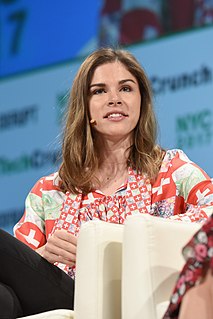A Quote by Jenna Wortham
Established technology companies like Amazon, Apple, and Google have expanded their reach and influence throughout the world. And while many countries have pushed back against that spread, our government has essentially left them alone.
Related Quotes
Google, Facebook, Amazon, Apple are among the most powerful monopolies in the history of humanity. So, the problem is, is that they have tremendous ability to shape the way that we think, the way that we filter the world, the way that we absorb culture. And if they were just companies, maybe we shouldn't be so concerned about them, but they play an incredibly vital role in the health of our democracy.
We see Google experimenting in so many places outside of its core search and advertising business, whether that's bringing broadband Internet to the world or funding an entirely separate company to pursue solutions to disease and mortality. Amazon's one of the few other companies that thinks as big as Google does.
And I know that sounds outrageous, but it's true. Such monopolies as Google, Facebook, Amazon, Apple are trying to stay with us from the moment that we wake up in the morning until the moment that we go to bed at night. They want to become our personal assistants. They want to become the vehicles to deliver us news, entertainment, to track our health. They want to obey our every beck and call through Amazon Alexa and Google Home.
Booksellers are tied to publishing - they need conventional publishing models to continue - but for those companies, that's not the case. Amazon is an infrastructure company; Apple sells hardware; Google is really an advertising company. You can't afford as a publisher to have those companies control your route to market.
Fifty years ago, the way that we consumed food was revolutionized. We began eating processed foods, and it seemed amazing. And then we woke up many decades later, and we realized that food was engineered to make us fat. And I think that such companies as Google, Facebook, Amazon, Apple are doing the same thing with the stuff that we ingest through our brains. They're attempting to addict us, and they're addicting us on the basis of data.





























